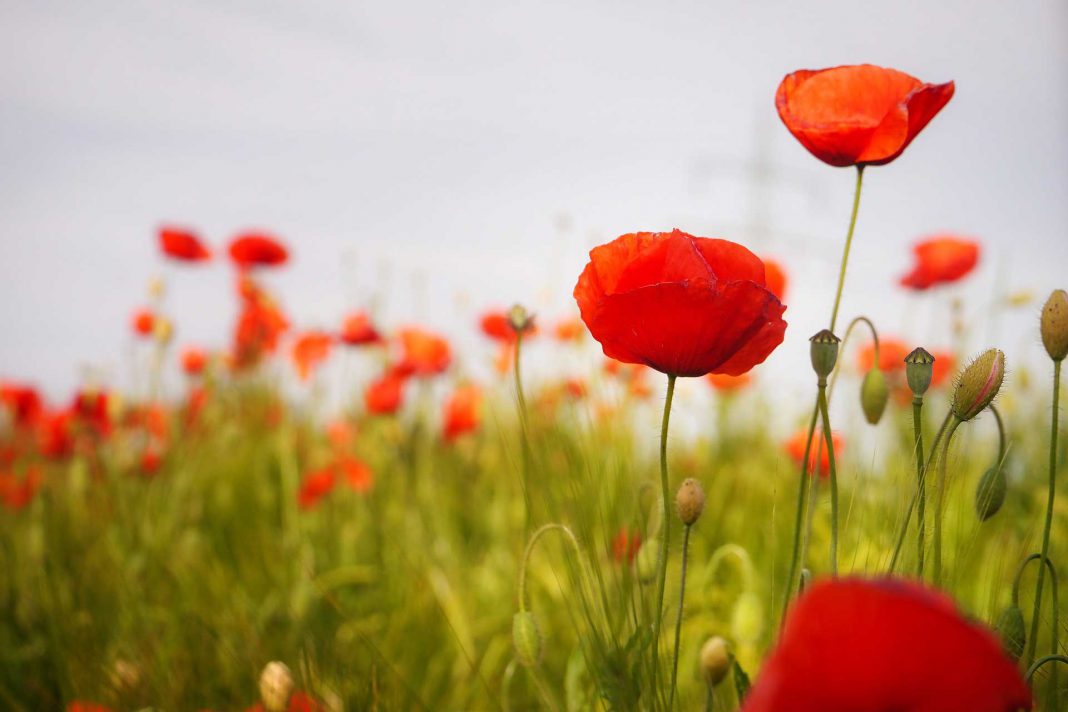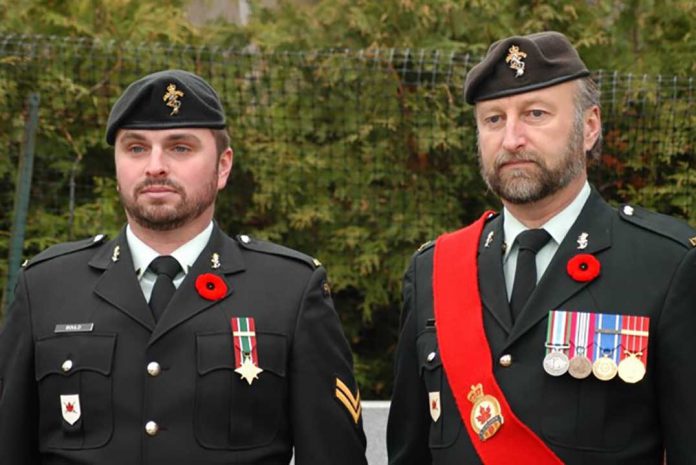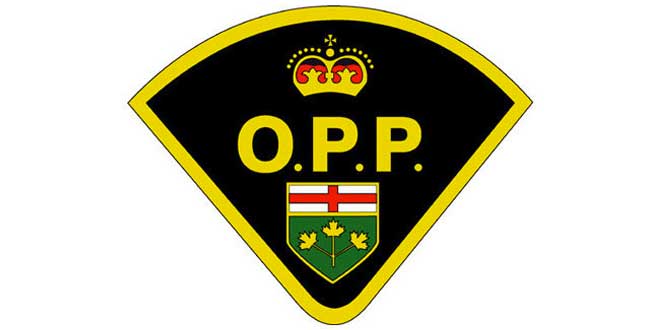“There is so much that we owe to those who we can truly never repay. The best we can do is to remember them with respect, honour and dignity; not just today, but every day.”
Manitoulin Secondary School marked Remembrance Day on Aboriginal Veterans Day on Thursday, November 8, 2018. The student led ceremony honoured the sacrifices of the brave men and women who fought for our freedom.
“We thank the Robinson-Huron Treaty First Nations peoples for welcoming us onto their land for this ceremony,” said April Torkopoulos. “Remembrance Day and Aboriginal Veterans Day offer us a time to reflect upon the sacrifices made by so many men and women, which we all too often forget,” added Matthew Redmond. “Individuals who had family and friends, who were very much real people, like you and me, who gave their lives, so that we could be here where we are today. We must not let their sacrifice be forgotten.”
The entire school community relived history and paid tribute to heroes through video presentations that provided a glimpse into the wars Canada has participated in over the last 100 years, highlighting some of the major conflicts.
“First Nations served in the military at a higher rate than any other group in Canada,” said Pierre Debassige. “In World War I, 35 per cent of eligible Indigenous men volunteered for service, a significantly higher rate than any other group in the nation. In fact, First Nations, Inuit and Métis people served Canada in all the great conflicts and peace support missions of the 20th century.”
He added: “On this Aboriginal Veterans Day, we remember our Indigenous veterans, as well as those who continue to serve in the Canadian Armed Forces. We also remember the more than 500 who made the ultimate sacrifice, as they helped protect peace and freedom over the years. We must never forget the accomplishments and sacrifices of Indigenous veterans, especially as we continue down the path toward reconciliation and healing.”
The Manitoulin Secondary School vocal group performed a musical version of “In Flanders Fields”. “The poem was written by Canadian field doctor, John McCrae, who treated soldiers at the second battle of Ypres in a hastily dug eight foot by eight foot pit,” said Dana Thomson. “John McCrae treated hundreds of wounded soldiers a day, and ended up writing the poem “In Flanders Fields” the day after the death of a close friend. While Lieutenant Colonel John McCrae died in the war, his memory lives on today, as does the symbol brought forward by his poem: the poppy. It is worn around the world as a symbol of remembrance.”
She added: “All too often, the realities of war manage to escape us. We forget that those who have fallen are more than just a number. We are here to remember those that gave the ultimate sacrifice, their lives.” In a touching tribute, students read the names of soldiers from Manitoulin Island who died in military service in both world wars.
“In 1918, on November 11th, at 11 am, hostilities finally came to an end in World War I,” said Amber Wahl. “Approximately 138,000 Canadians lost their lives. On a larger scale, it is estimated that World War 1 took over 17 million lives, and left 20 million people wounded.”
She added: “In World War II, 37,000 Canadians lost their lives, and globally, including civilian deaths, nearly 80 million people died. These numbers are almost incomprehensible to us.”
Manitoulin Secondary School Principal, Jamie Mohamed, joined by a local Cadet, laid a wreath in memory of all Canadian veterans. Those in attendance stood for The Last Post, observed a moment of silence, and remained standing for The Reveille as images of war heroes flashed across a big screen. The wreath was later moved to the Peace Pole at the front of the school where it will remain until Remembrance Day.
The service culminated with an Act of Remembrance, an ode from Laurence Binyon’s poem “For the Fallen,” which was first published in 1914. Composed in honour of the British casualties on the Western front in the opening phases of World War I, over time, the fourth stanza has been claimed as a tribute to all casualties of war, regardless of nation. The Manitoulin Secondary School community recited this stanza from “For the Fallen” as an Act of Remembrance, in Ojibwe and English.
They shall grow not old,
as we that are left grow old:
Age shall not weary them,
nor the years condemn.
At the going down of the sun
and in the morning
We will remember them.
The ceremony ended with the singing of the national anthem. “As you continue with your day, we ask that you take that time to remember all the sacrifices made by the brave men and women who have in the past, and are still protecting our country,” said Amber Wahl. “There is so much that we owe to those who we can truly never repay. The best we can do is to remember them with respect, honour and dignity; not just today, but every day.”





